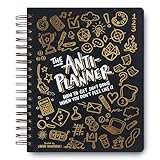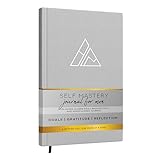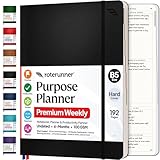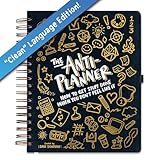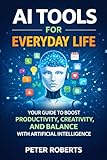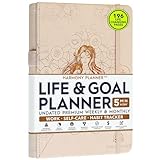Ever felt like your creative well has run dry? Like you’re staring at a blank page, a blinking cursor, or an empty canvas, and the inspiration just isn’t flowing? We’ve all been there. The good news is that creative productivity isn’t some mystical gift; it’s a skill you can hone with the right tools and techniques. This article will explore practical strategies to unlock your creative potential and maximize your output.
Understanding Creative Productivity
Before diving into the tools and techniques, let’s define what we mean by creative productivity. It’s not just about churning out a high volume of work; it’s about producing high-quality, original work that aligns with your goals. It’s about finding that sweet spot where inspiration meets efficient execution.
The Importance of Process
Many people believe creativity is spontaneous, but a structured approach can significantly enhance it. Think of it like a chef preparing a meal. They don’t just throw ingredients together randomly; they follow a recipe, use specific techniques, and have the right tools at their disposal. Similarly, creative productivity thrives on a well-defined process.
Tools for Maximizing Creative Productivity
The right tools can be game-changers for your creative workflow. Here are a few examples:
Mind Mapping Software
Tools like XMind and MindManager allow you to visually organize your thoughts, brainstorm ideas, and connect concepts in a non-linear way. This can be particularly helpful for overcoming mental blocks and generating new ideas. “Mind mapping helps me see the bigger picture and uncover connections I might otherwise miss,” says renowned productivity expert David Allen.
Project Management Tools
Trello, Asana, and Monday.com are invaluable for managing complex creative projects. They allow you to break down large tasks into smaller, manageable steps, track progress, and collaborate with others seamlessly.
Note-Taking Apps
Evernote, OneNote, and Bear are excellent for capturing ideas on the go, organizing research, and creating outlines. These apps often sync across multiple devices, ensuring your ideas are always accessible.
 Maximizing Creative Productivity Tools
Maximizing Creative Productivity Tools
- Helps Boost Your Productivity - Nothing beats the satisfaction of staying on top of your daily tasks and goals. Use our chic focus planner to prevent procrastination whether at work or in school. It contains daily and monthly sheets to keep you organized.
- Make Your To-Do List Accessible - Remember all important deliverables when you list them on your minimalist project management planner. Each time journal is designed with different planning and task categories, which help cultivate focus and good habits.
- Carr, Bronek (Author)
- English (Publication Language)
- Used Book in Good Condition
- Mann, David (Author)
- Escape Conventional Planning: With over 165 strategies and activities, The Anti-Planner turns boring tasks into engaging, stress-free experiences. Perfect for those who defy the norm.
- Creative & Fun Daily Tools: Tackle everyday challenges with over 100 fun activities designed to boost productivity and make ADHD awesome. Say goodbye to boring routines!
- PERSONAL GROWTH: All positive changes begin in the mind - and with the Realizations Self-Mastery Journal for Men & Women, you can live life to the fullest potential, Use this journals for men one page at a time.
- INSPIRATIONAL: Enhance your confidence and happiness with this 13-week guided gratitude journal - improve productivity, create a vision and thrive in the moment. This daily planner is undated and is a journal with prompts so you can easily accomplish your goals.
- Discover Balance & Boost Productivity: 6-Month Undated B5 Daily Planner, Manifestation Journal & Self Coaching Notebook. Productivity tools created with simplicity in mind, to empower busy people to take back control of their time.
- Marsh, Deborah (Author)
- English (Publication Language)
- Escape Conventional Planning: With over 165 strategies and activities, The Anti-Planner turns boring tasks into engaging, stress-free experiences. Perfect for those who defy the norm.
- Creative & Fun Daily Tools: Tackle everyday challenges with over 100 fun activities designed to boost productivity and make ADHD awesome. Say goodbye to boring routines!
- Amazon Kindle Edition
- Roberts , Peter (Author)
- THIS IS A DELUXE UNDATED HARMONY PLANNER - Showing you how to become the best possible version of yourself on a mental, physical & interpersonal level. It’s the only planner of its kind, and its design is based on leading scientific studies that are proven to increase productivity, harmony & happiness! It has a vision board to stay focused, morning & evening routines, mind maps, reflection pages, 90-day habit tracker, back pocket, harmony guide and so much more than any other planner listed!
- INCREASE YOUR PRODUCTIVITY AND HAPPINESS BY 300% - Help you become much more productive by teaching you how to focus only on your top priorities and delegate the rest. So you can achieve more and create more free time, happiness for yourself. The perfect productivity and time management planner. This Weekly Planner includes To-Do Lists, Feel-Good Lists & Gratitude Journal - The weekly/monthly feel-good list will help you not to forget yourself and put yourself first.
Techniques for Maximizing Creative Productivity
While tools can facilitate the creative process, techniques are the driving force behind it.
Time Blocking
Allocate specific blocks of time for creative work and eliminate distractions during these periods. This dedicated focus allows you to enter a flow state, where creativity flourishes.
The Pomodoro Technique
Work in focused bursts of 25 minutes followed by a short break. This technique can help maintain concentration and prevent burnout.
Brainstorming
Engage in regular brainstorming sessions, either individually or with a group. Don’t censor yourself during this process; the goal is to generate as many ideas as possible, no matter how outlandish they may seem.
Freewriting
Write continuously for a set period without worrying about grammar, spelling, or structure. This technique helps unlock hidden ideas and overcome writer’s block.
Mindfulness and Meditation
Practicing mindfulness and meditation can quiet the mental chatter and create space for new ideas to emerge. “A quiet mind is a fertile ground for creativity,” observes author and spiritual teacher Eckhart Tolle.
Embrace Constraints
Limitations can paradoxically boost creativity. Try working within specific parameters, like a limited color palette or a strict word count. This can force you to think outside the box and come up with innovative solutions.
Seek Inspiration
Actively seek inspiration from diverse sources. Visit museums, attend concerts, read books outside your usual genre, or simply take a walk in nature. Exposure to new experiences can spark fresh ideas and perspectives.
Embrace Failure
Don’t be afraid to experiment and make mistakes. Failure is an integral part of the creative process. Learn from your mistakes and use them as stepping stones to future success. As Thomas Edison famously said, “I have not failed. I’ve just found 10,000 ways that won’t work.”
Cultivate Curiosity
Cultivate a curious mindset. Ask questions, explore new topics, and challenge assumptions. Curiosity is the fuel that drives creativity.
Collaborate and Seek Feedback
Collaborating with others can bring fresh perspectives and insights to your work. Don’t be afraid to share your ideas and seek feedback from trusted colleagues or mentors.
Combining Tools and Techniques
The most effective approach to maximizing creative productivity involves combining the right tools with the right techniques. Experiment with different combinations to find what works best for you.
Conclusion
Maximizing creative productivity is a journey, not a destination. It requires ongoing effort, experimentation, and a willingness to adapt. By incorporating the tools and techniques outlined in this article, you can unlock your creative potential, overcome challenges, and consistently produce high-quality work. Remember, the key is to find a process that works for you and stick with it. Now, it’s your turn. What tools and techniques do you use to boost your creative productivity? Share your thoughts in the comments below!



